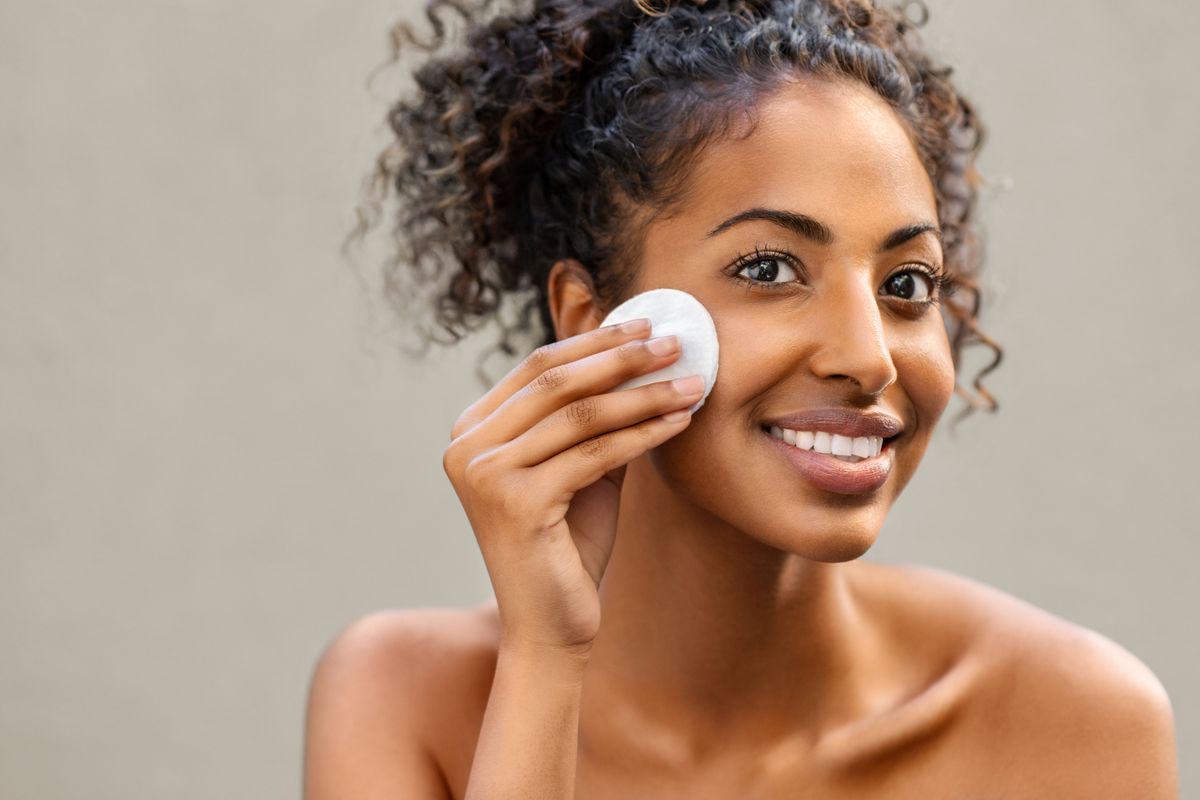At one point, toner was the go-to recommendation for oily-skinned teens who needed to zap breakouts and shine. But over time, it became relegated to the beauty back burner due to a common drawback: Many formulas contained alcohol that ultimately dried out the skin. But experts say toners deserve a second look, that they’ve come a long, long way in recent years. Today, the product isn’t one-size-fits-all.
You can find a variety of formulas designed for a variety of skin types for more targeted application—even toners that can nourish skin during the upcoming drying winter months. “Facial toners have made a comeback thanks to the widespread popularity of Korean 10-step skincare regimens,” says Christine Choi Kim, MD, a dermatologist based in Los Angeles.
And even if you aren’t interested in cultivating a ten-step skincare routine, toner still has some major benefits for your complexion no matter your skin type or tone. Curious? Great. Keep reading for exactly how to use facial toner, according to experts. What exactly is a toner? Facial toner is basically the in-between skincare step. It’s meant to be used after washing your face but before applying your serum or moisturizer. “Historically toners were used as a way to balance the pH of the skin after using an alkaline soap product for cleansing,” says Rebecca Kazin, MD, a dermatologist in Washington, DC.
Now, as our cleansers tend to be more pH balanced and gentle, toners have evolved to a skincare category all their own. Advertisement – Continue Reading Below Dr. Kazin adds: “The thought process has changed from just a typically astringent product. There are now more types of toners that provide different benefits.” As for their alcohol content? Today’s toners are typically pretty water-based.
What are the benefits of using a toner? Face toners prep the skin for moisturizers and serum while getting rid of excess oil and stubborn dirt or makeup leftover on your face after you wash it, says Dr. Kim. But they’re not a replacement for washing your face. Just think of facial toners as the extra credit rather than the shortcut of your skin-care routine. The reformulated toners of today are used to target a varying array of skin concerns—from acne to dryness to aging, says Dr. Kim. Like their predecessors, some toners are formulated for oily skin. “A toner with a combination of glycolic and salicylic acids can keep oily skin matte throughout the day,” says Estee Williams, MD, a dermatologist in NYC. Other toners are for drier skin types and contain hydrating ingredients. “Some newer formulations are even toner-serum hybrids with more substantial gel or lotion textures,” Dr. Kim explains.












